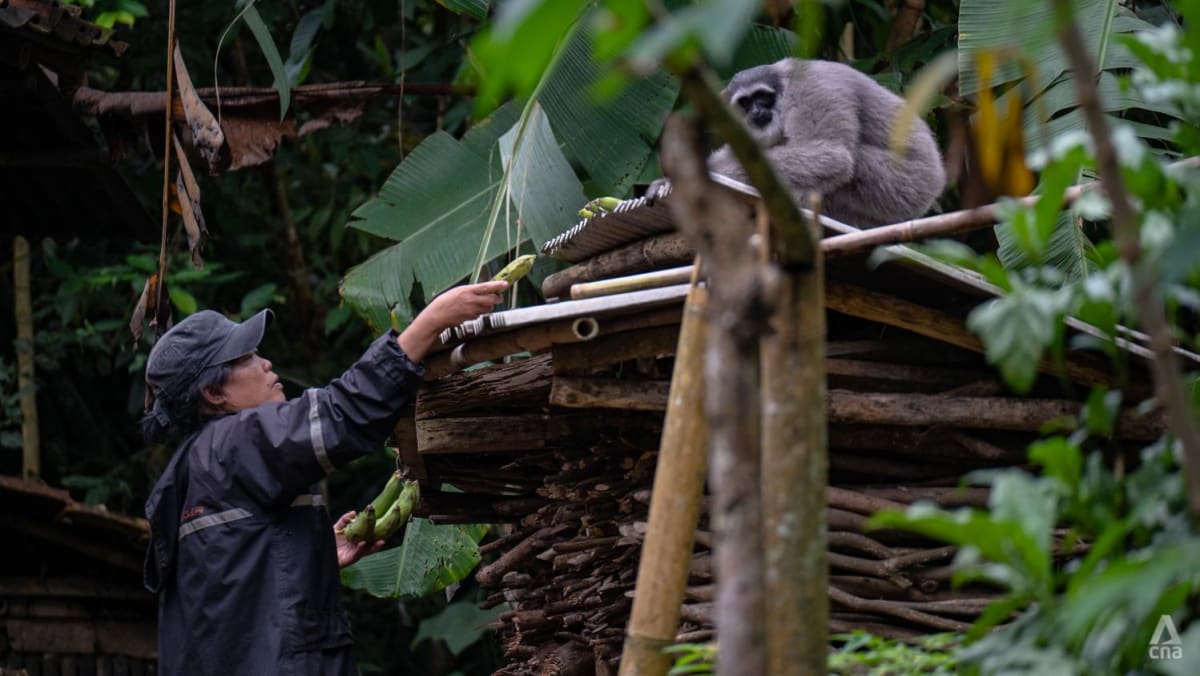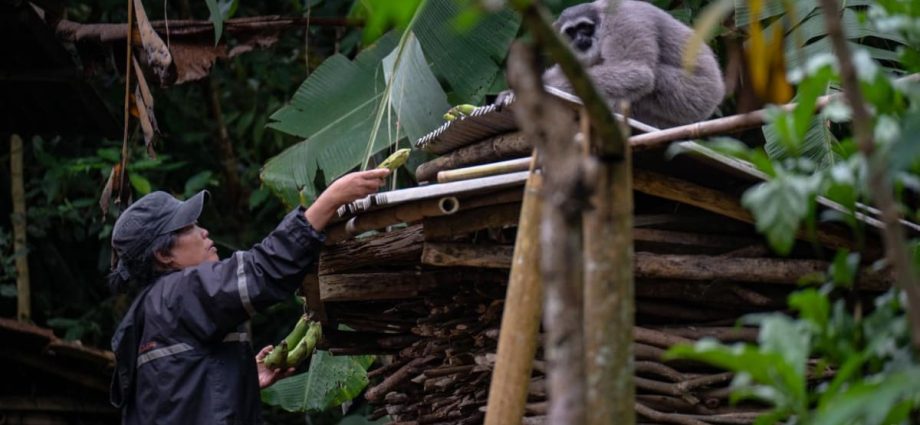
SUKABUMI, Indonesia: With her trusty walking cane in hand and a backpack filled with ripe bananas, Tini Kasmawati trudged through the slippery, mud-caked paths of a dwindling forest near her village, unfazed by the drizzling rain, frigid morning air and most of all: Her deteriorating vision.
Occasionally, the visually impaired woman lost her footing on the hilly terrain. But she pressed onward, eager to encounter the elusive creatures that called this forest home: The silvery gibbons, an endangered species endemic to Indonesia’s most populous island, Java.
For the past nine years, Kasmawati, a 51-year-old food vendor from Lengkong village in West Java’s Sukabumi regency, has been providing food to a family of gibbons that roam a once lushly canopied hill.
That hill is now slowly being converted into rubber plantations and human settlements.
“The gibbons only eat ripe (fruits), but before (the fruits) are ripe, they are either harvested by the farmers (who grow them) or stolen by others,” Kasmawati told CNA.
With virtually nothing they could eat aside from leaves and insects, conflicts with humans became rampant in Lekong village, threatening the survival of a species with a population of just around 2,000 left in the wild.
The silvery gibbons are territorial and rarely venture out of their respective areas, unless to find a suitable partner with which they mate for life.
Kasmawati’s efforts to provide food for the gibbons – using a bucket hoisted onto a makeshift bamboo platform – not only prevented these conflicts from happening but also improved the gibbons’ welfare.
“The gibbons have very good instincts. If they feel that a long drought is coming and food scarcity is imminent, they would hold off from producing more offspring,” she said.

